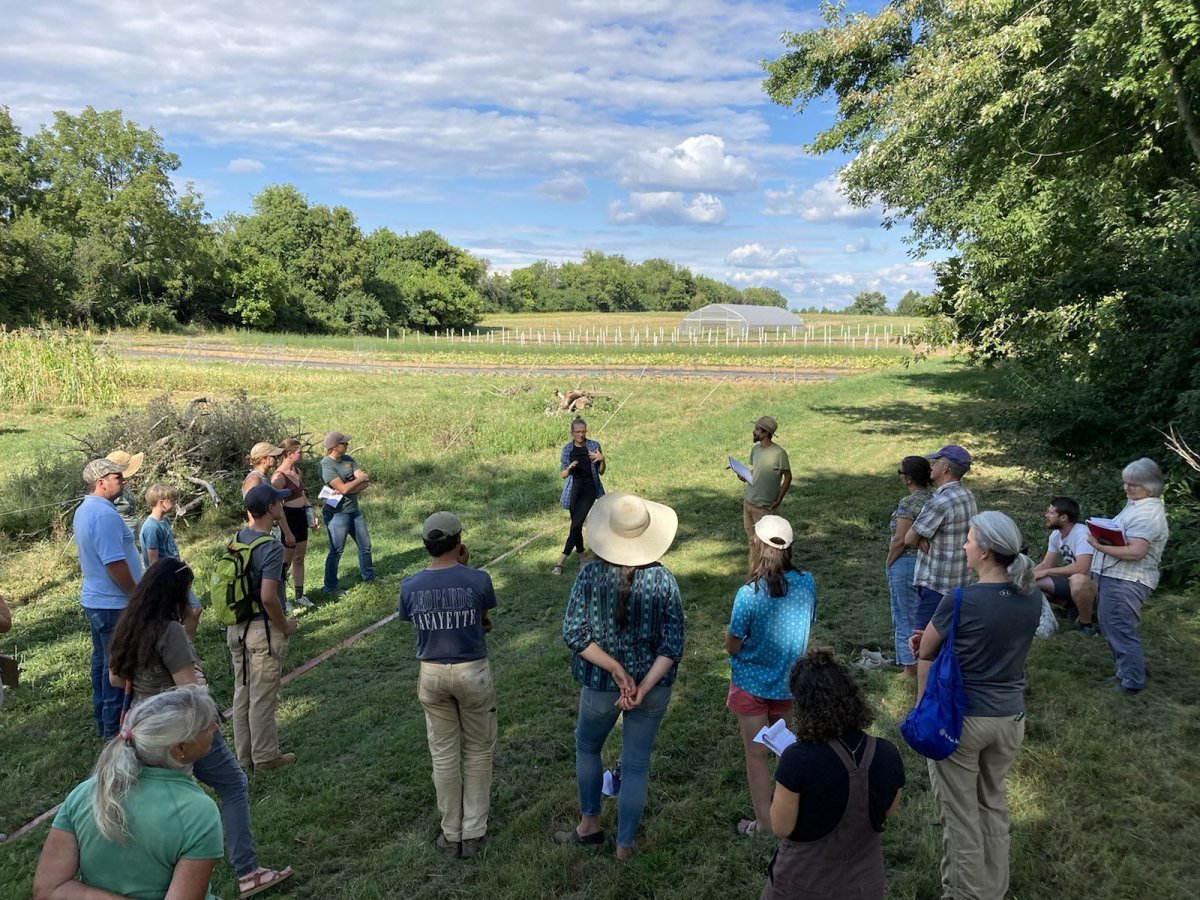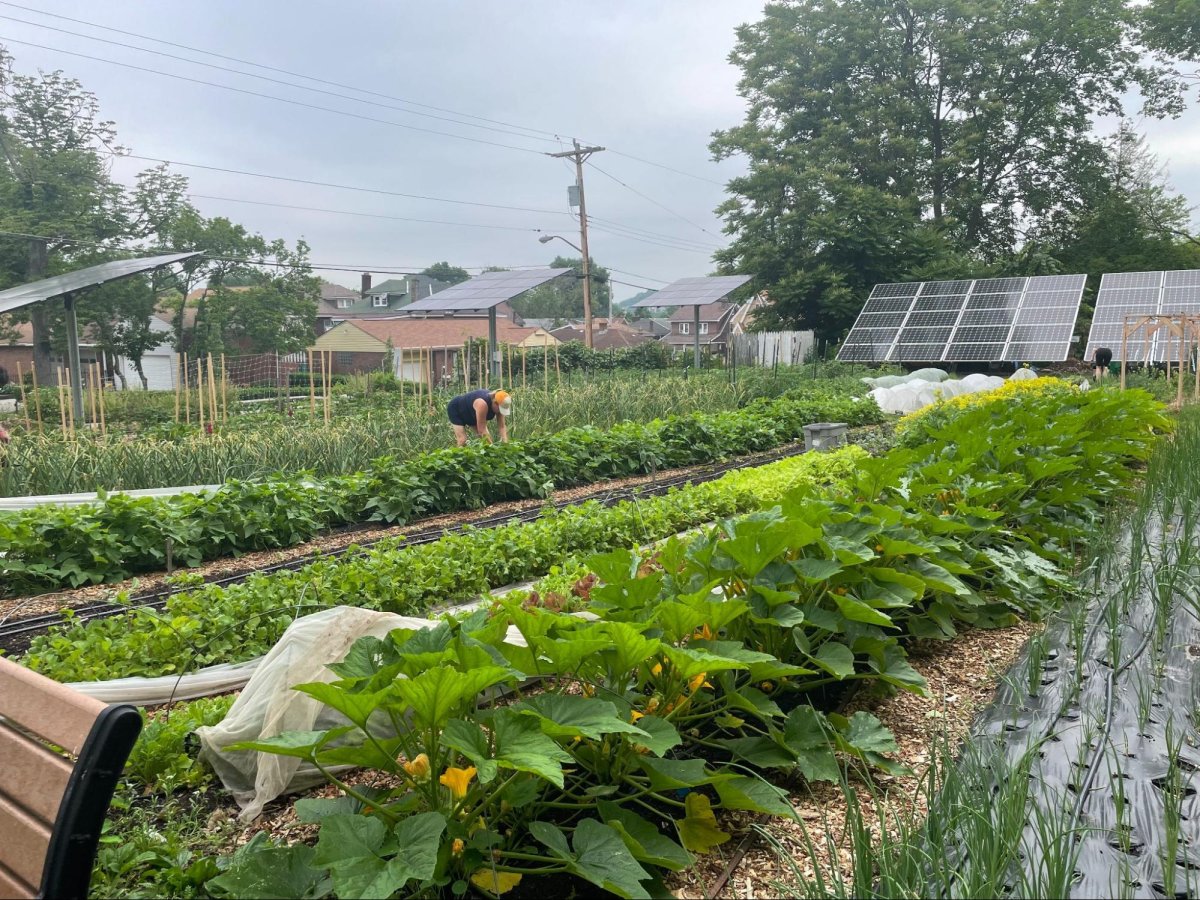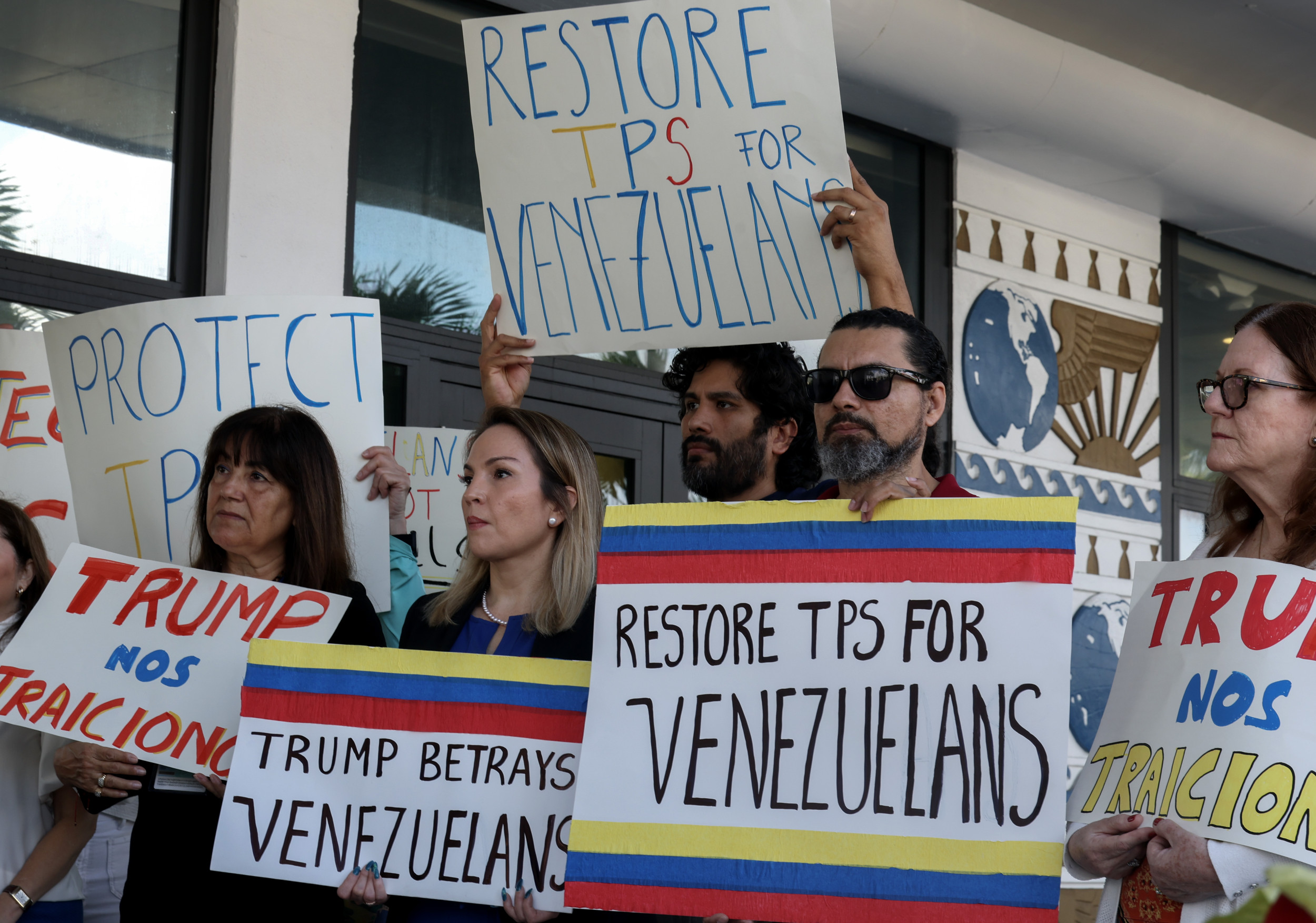The Pennsylvania-based group Pasa Sustainable Agriculture has been working to help small-scale farmers for nearly 35 years. With a history of community organizing, the group is quite literally a grass-roots institution, Executive Director Hannah Smith-Brubaker explained. Members focus on soil health and crop and pasture management practices that promote both bountiful harvests and healthy ecosystems.
"Seven or eight years ago, we started really hearing from farmers, 'Look, the climate is impacting our ability to continue to farm, and we need support,'" Smith-Brubaker told Newsweek.
Warming due to climate change has caused seasonal shifts in plant-growth patterns and changed the boundaries of the hardiness zones that farmers follow to know which plants will thrive in their area. Precipitation patterns have also changed dramatically in parts of the Mid-Atlantic and Northeast regions that Pasa serves, bringing swings between periods of drought and heavy, damaging downpours.
"It was really out of that need that we decided to pursue the Climate Smart Commodities grant," she said.

The Climate Smart program is a Biden-era initiative to support practices that promote clean energy and climate resilience in farming, forestry and ranching through grant programs administered by the U.S. Department of Agriculture.
For the small-scale farmers Smith-Brubaker works with, that meant opportunities to expand grazing areas to reduce impact from concentrated livestock, reseed pastures with native grasses more resistant to drought, plant trees to provide additional shade for animals or switch to crops that required less soil disturbance and thus caused less erosion.
The grants promised to help farms expand while contributing a little toward creating a landscape that is more resilient to the challenges of climate change. Heavier and more frequent downpours, for example, can increase erosion and send more sediment and nutrients into vulnerable watersheds such as the Chesapeake Bay.
"I like to think about farms as just giant sponges," Smith-Brubaker said. "The more we improve the soil health, the more that sponginess increases."
She said that research shows that every additional percent of organic matter added to an acre of farmland can help it absorb an additional 22,000 gallons of water.
Expanding that across the many farms in a watershed quickly adds up to something that could make a big difference in water quality and flood control.
"You're starting to get into the billions of gallons of rain that can be absorbed by farms with just every farm doing their part and improving their soil health," she said.
Drawing on the group's three decades of relationship and trust building in farming communities, Pasa helped farmers find good matches for grant-supported projects.
For 1 Sound Farm, that meant an opportunity to install a water line for their urban gardens in Pittsburgh.
"It was music to my ears," said farmer Ebony Lunsford-Evans, who works at 1 Sound. "We were super excited to have a water line."
In a Pasa town hall-style meeting, Lunsford-Evans and other farmers shared what they had hoped to do on their properties with the Climate Smart grants.
Kacie Bachman planned to use the grant to install a new watering system at her veterinary boarding business in Lebanon County, Pennsylvania, and reduce soil disturbance by the horses.
For George Brittenburg and Ola Creston at Taproot Farm in Pennsylvania's Berks County, the grant was a chance to extend fencing for grazing animals. Rob Dunning at Raspberry Ridge Creamery near Allentown had similar plans for the pastures his sheep use, as well as a grant that allowed a local food bank to purchase his farm's sheep's milk cheese and yogurt.
"It allowed our healthy food to be available to our local community," Dunning said. The farmers described the months of planning, consultations and paperwork that went into the projects and the contracts with local workers who would be involved.

With the arrival of President Donald Trump's administration, however, all that came to a halt. Most of the spending on the grant programs has been frozen with little explanation or guidance on what might come next.
"I'm in a state of shock, to be honest," Lunsford-Evans said. "I cried a little bit—I was mad."
Brittenburg and Creston worried about the ripple effect in their communities as they and other farmers delivered bad news to contractors.
"We have to tell them we are no longer able to support these other local businesses," Creston said. "Many other parts of the local economy are affected."
Dunning said developing infrastructure for a farm can take years of planning, and the sudden change upended that effort.
"The uncertainty with the funding freezes makes planning difficult," he said.
Last week, Pasa joined 15 other nonprofits and city governments in a lawsuit against the Trump administration and USDA seeking to restore the funding. On Wednesday, the Southern Environmental Law Center and the Public Rights Project, the legal organizations representing the groups, filed a motion for a preliminary injunction in the case seeking immediate relief from what the groups said is irreparable harm from the funding freeze.
The USDA press office did not respond to a request for comment.
That's not the only legal challenge to the funding freeze. The environmental law group Earthjustice filed a similar lawsuit on March 13 on behalf of nonprofit groups and farmers participating in the Rural Energy for America Program (REAP), which supports clean-energy development on farms.
This week, according to Earthjustice lawyers, Agriculture Secretary Brooke Rollins offered to release REAP funds if the farmers rewrite their grant applications to comply with Trump's executive orders on energy. In an emailed statement, Earthjustice senior attorney Hana Vizcarra called that a "disingenuous stunt" designed to ultimately deny the grants.
"Farmers have taken on loans and spent thousands of dollars to install solar panels and pursue energy-efficiency upgrades because they believed they would be paid back in line with their REAP agreement," Vizcarra said. "President Trump and Secretary Rollins can't change the rules of the game well into the second half."
Earthjustice also filed an earlier lawsuit against the USDA over the department's removal of climate-related information from its website. Farmers said important resources on climate adaptation and technical guidance on government assistance had been eliminated.

At Pasa, Smith-Brubaker said that without access to the grant funding, she faced the difficult task of laying off 60 employees.
"I feel sick to be furloughing so many people because every single one of those people has an individual story," she said. "We have people due to have babies in the next couple weeks, people who just bought their first house, people who got married, all assuming—and I think rightfully so—that they had this employment."
She said the group's bank has said it will downgrade the credit rating of nonprofits that rely on federal government contracts for funding.
"Who would have thought that a contract with the government would be something that you just couldn't count on?" she asked in wonder.
Horse farm owner Kacie Bachman said she was also taken aback by the notion that the U.S. government would not be a reliable partner.
"You kind of think, Oh the federal government, they're very stable and they keep their promises," she told Newsweek. "So, I'm a little bewildered by this."
Bachman said she thinks the experience will leave farmers leery of any future engagement with the USDA.
As they await the outcome of the lawsuit, the farmers described how they are cutting back on other expenditures or seeking other financing to try to complete some of their projects. But many said the opportunity would be lost.
"We like to think we're helping the world by being a small farm," Dunning said. "I guess we'll be a little smaller and help a little bit less."
Correction 3/28/2025, 10:55 a.m. ET: This story was edited to more accurately describe the origin of the Climate Smart Commodities program.
About the writer
Jeff Young is Newsweek's Environment and Sustainability Editor based in Louisville, Kentucky. His focus is climate change and sustainability with an ... Read more




